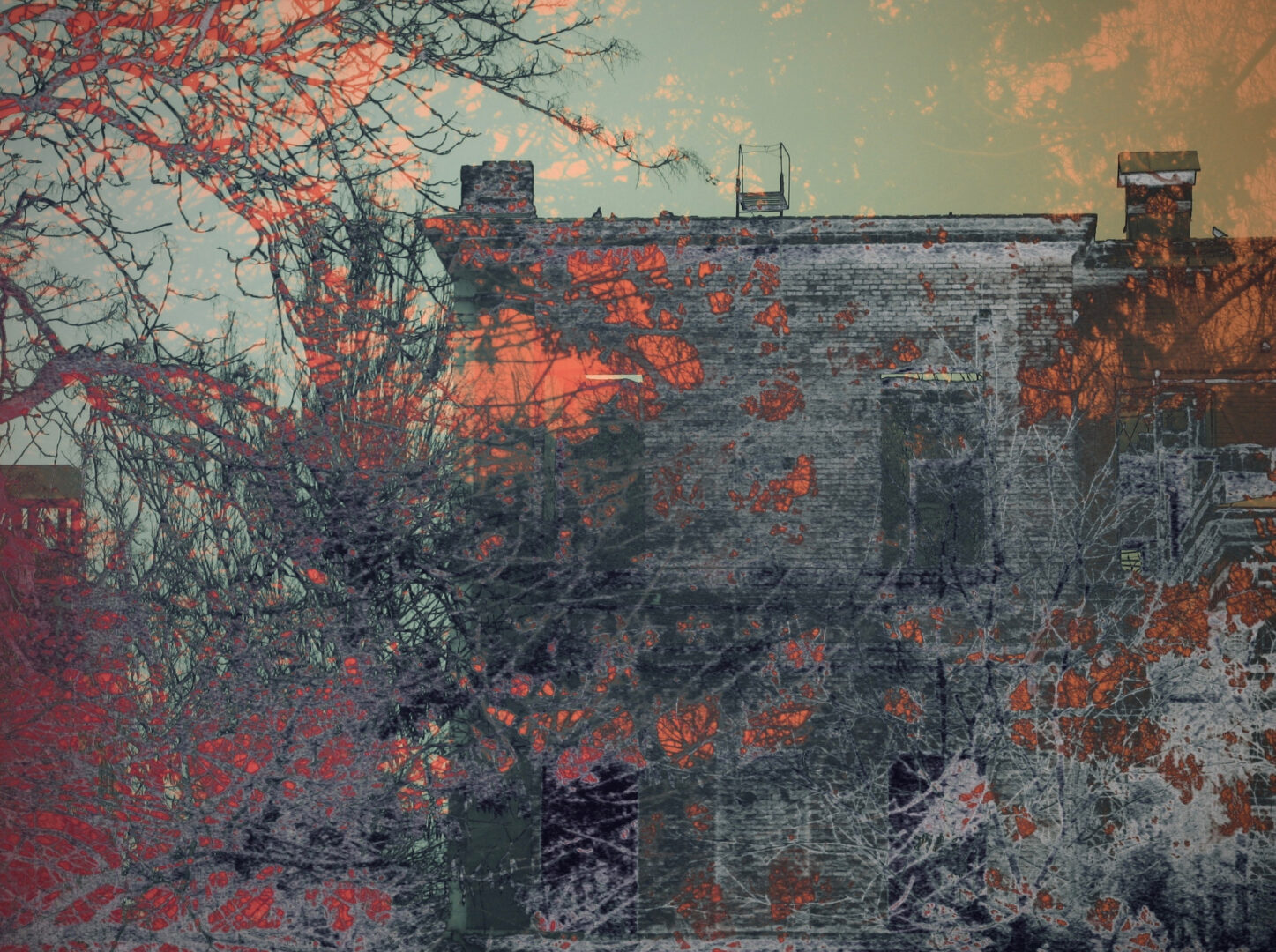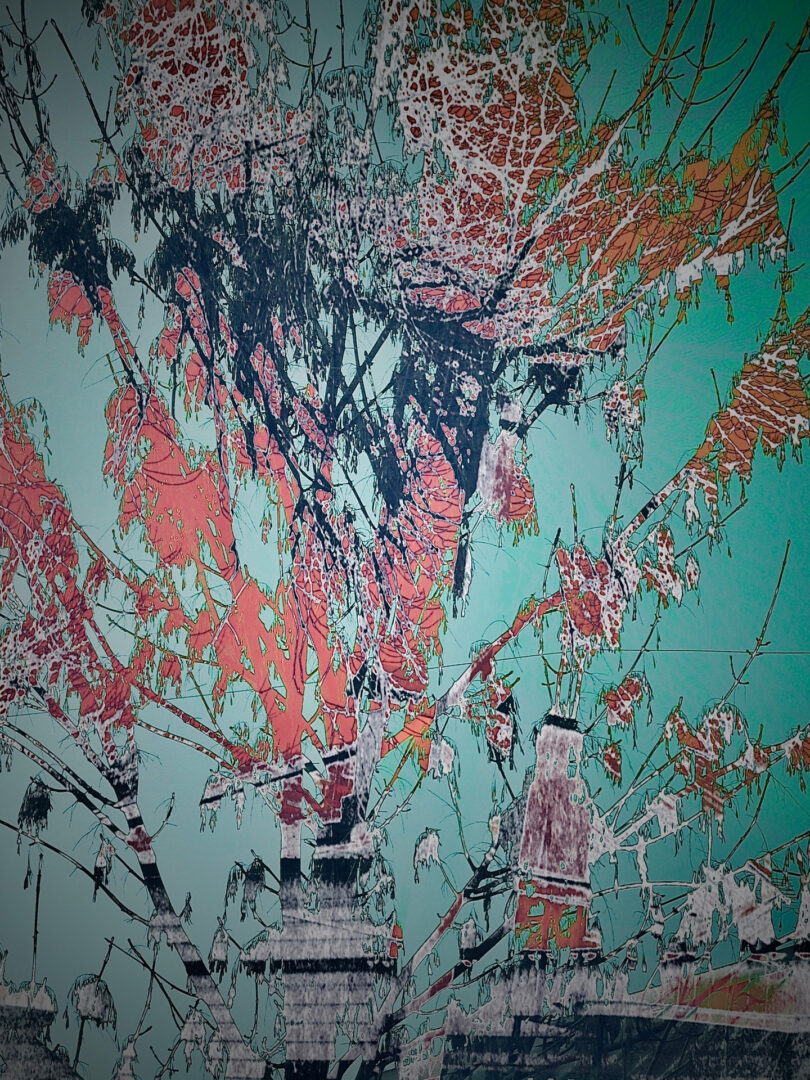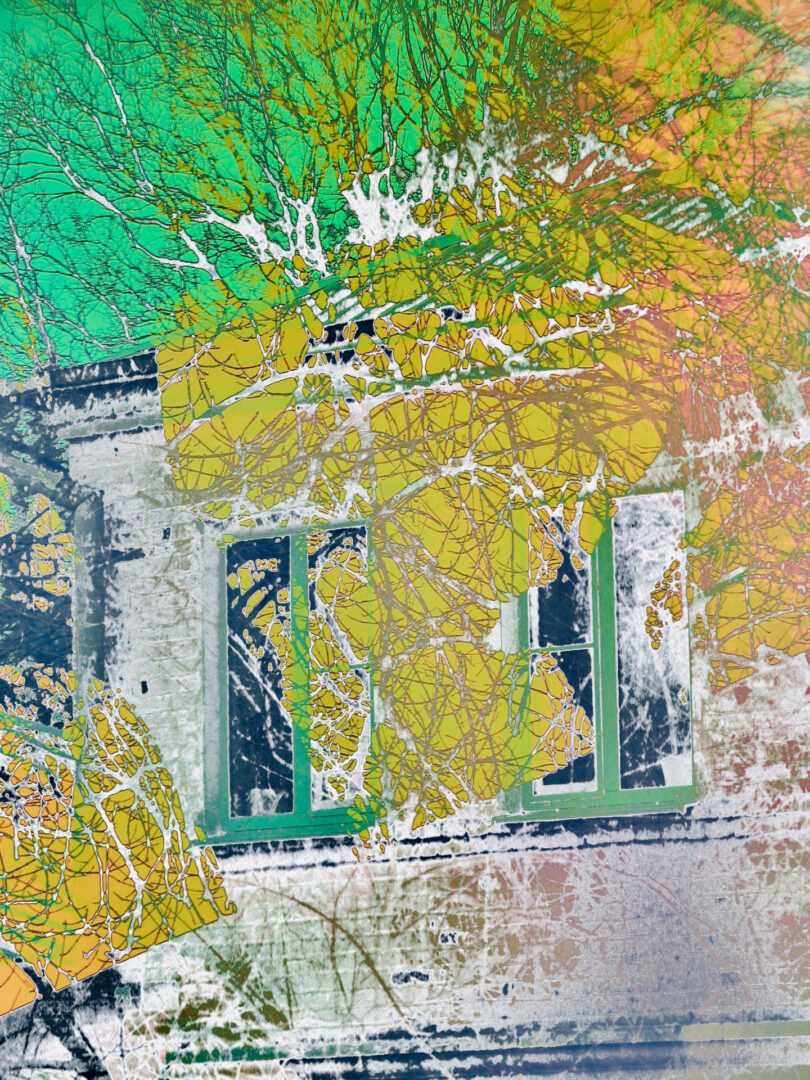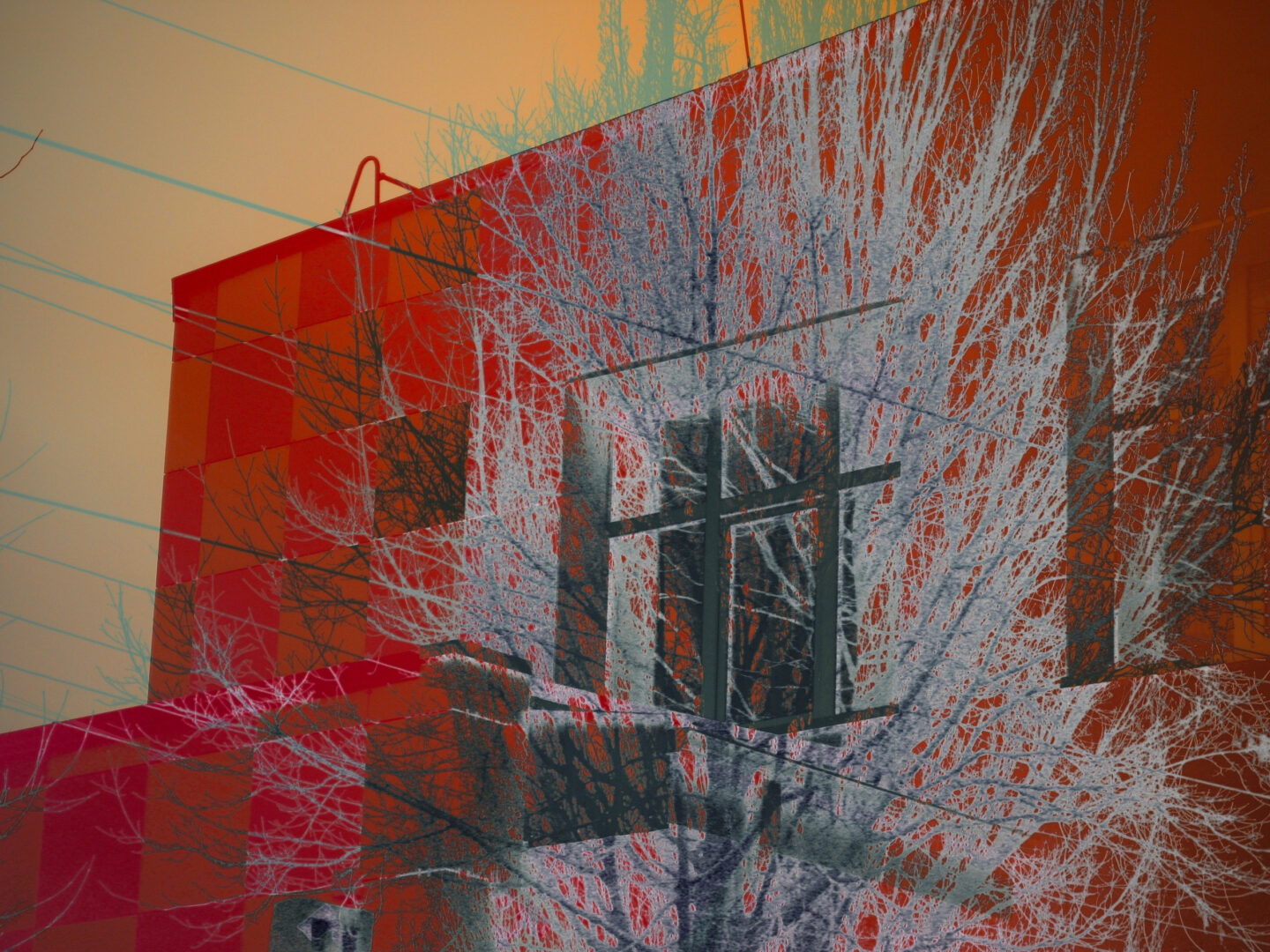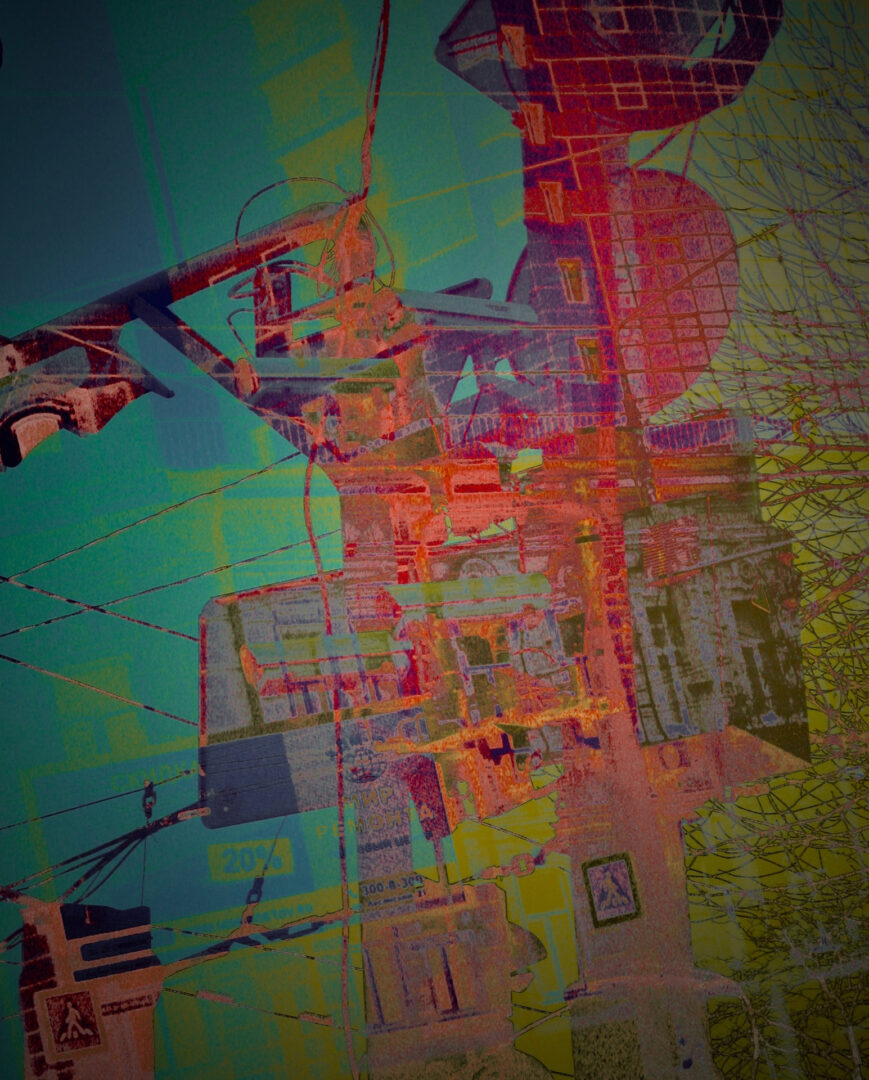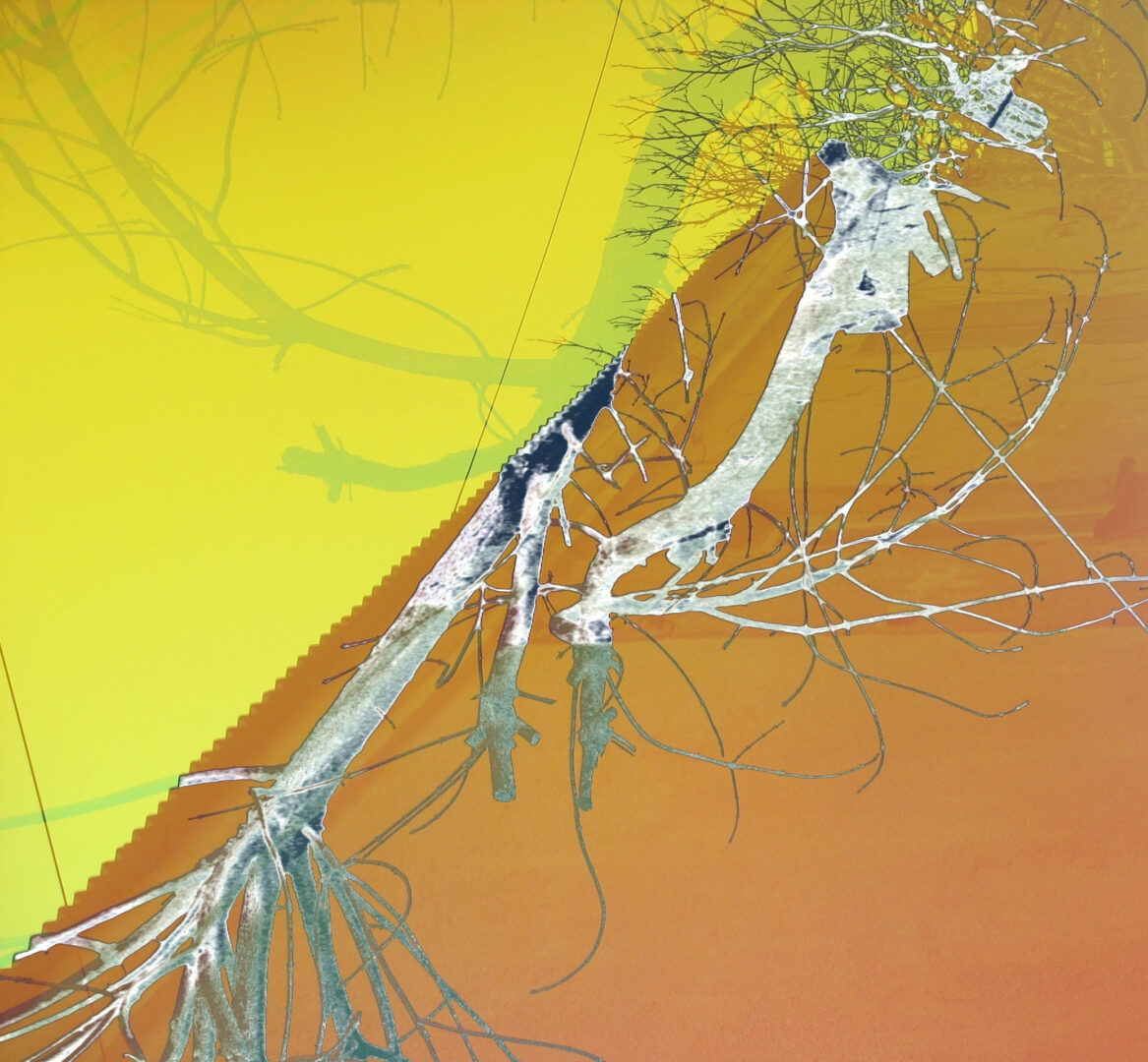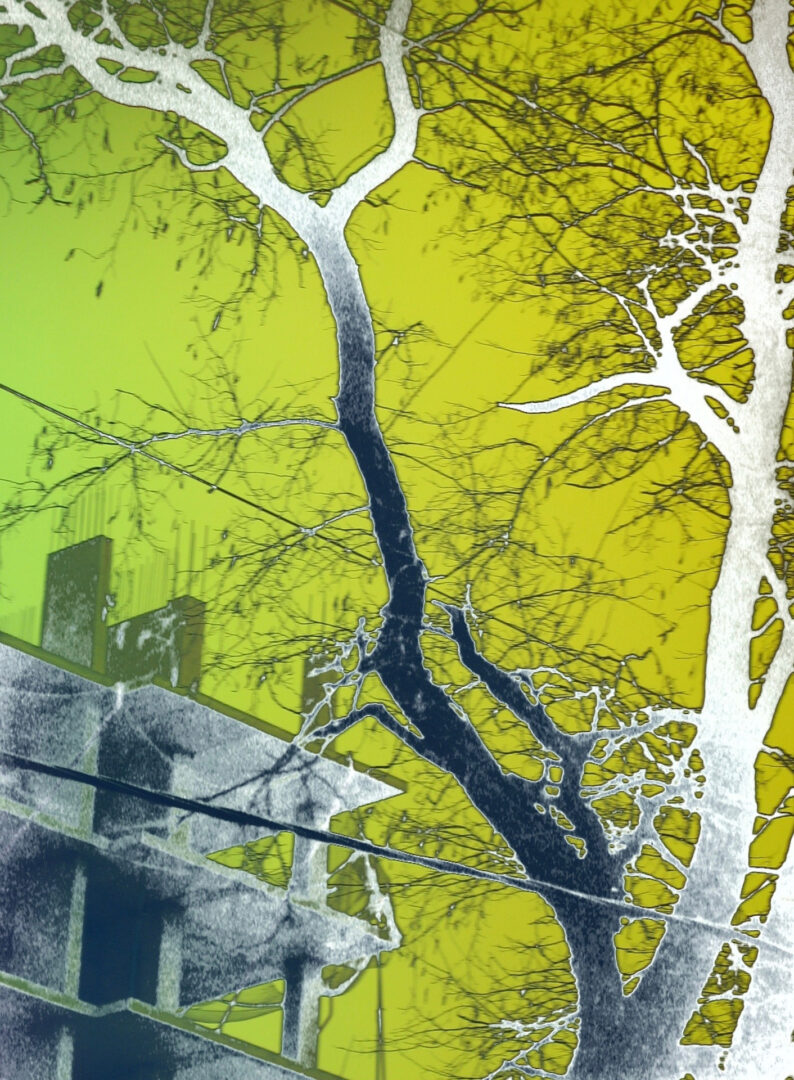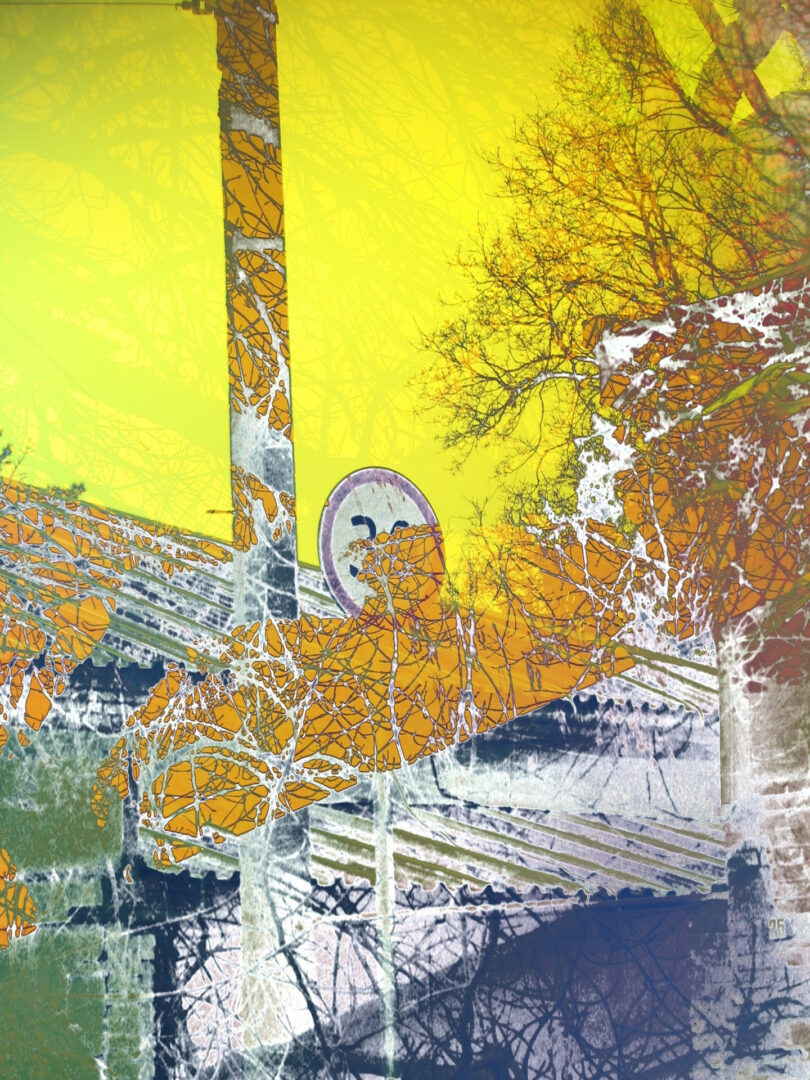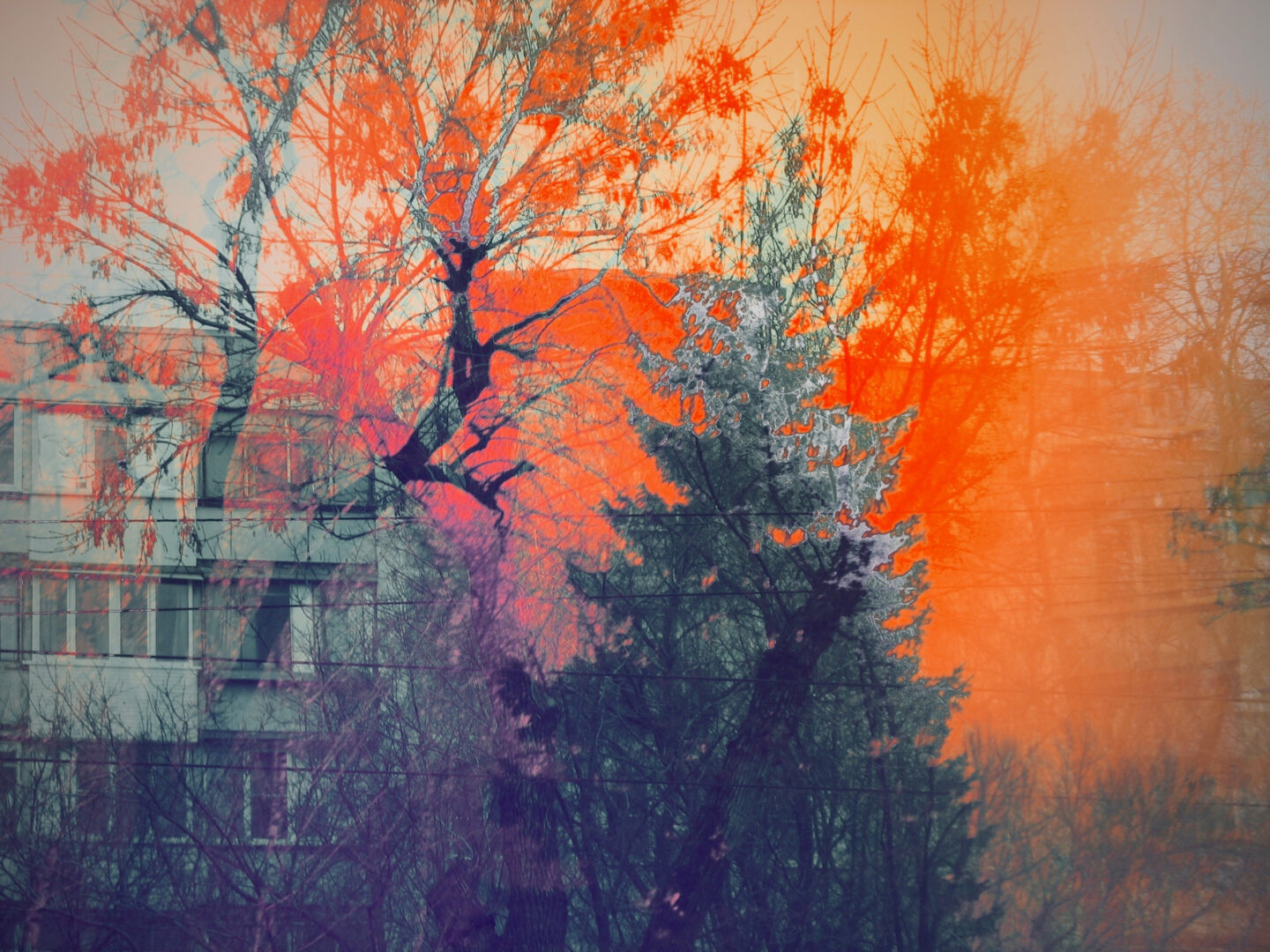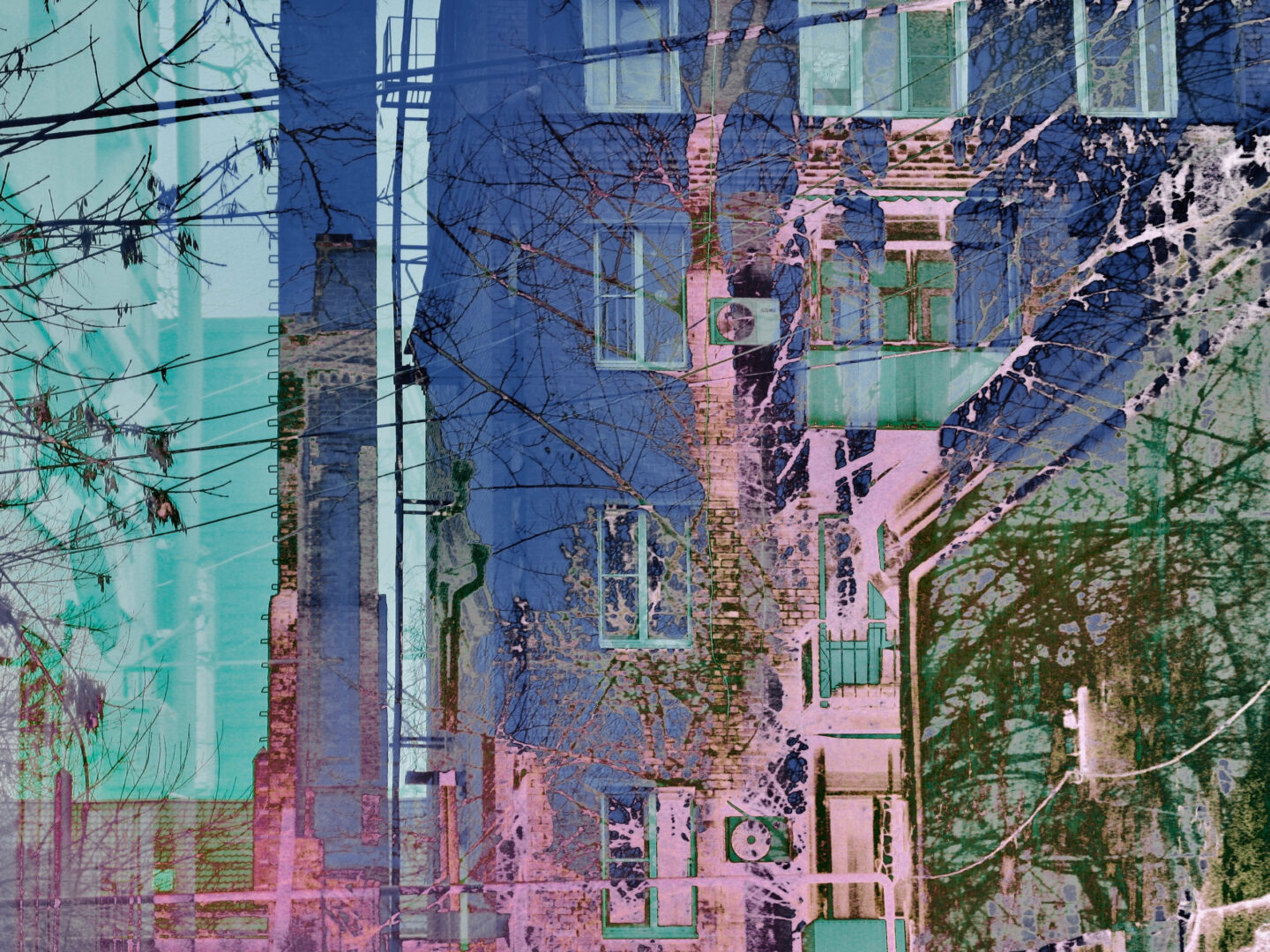Rostov
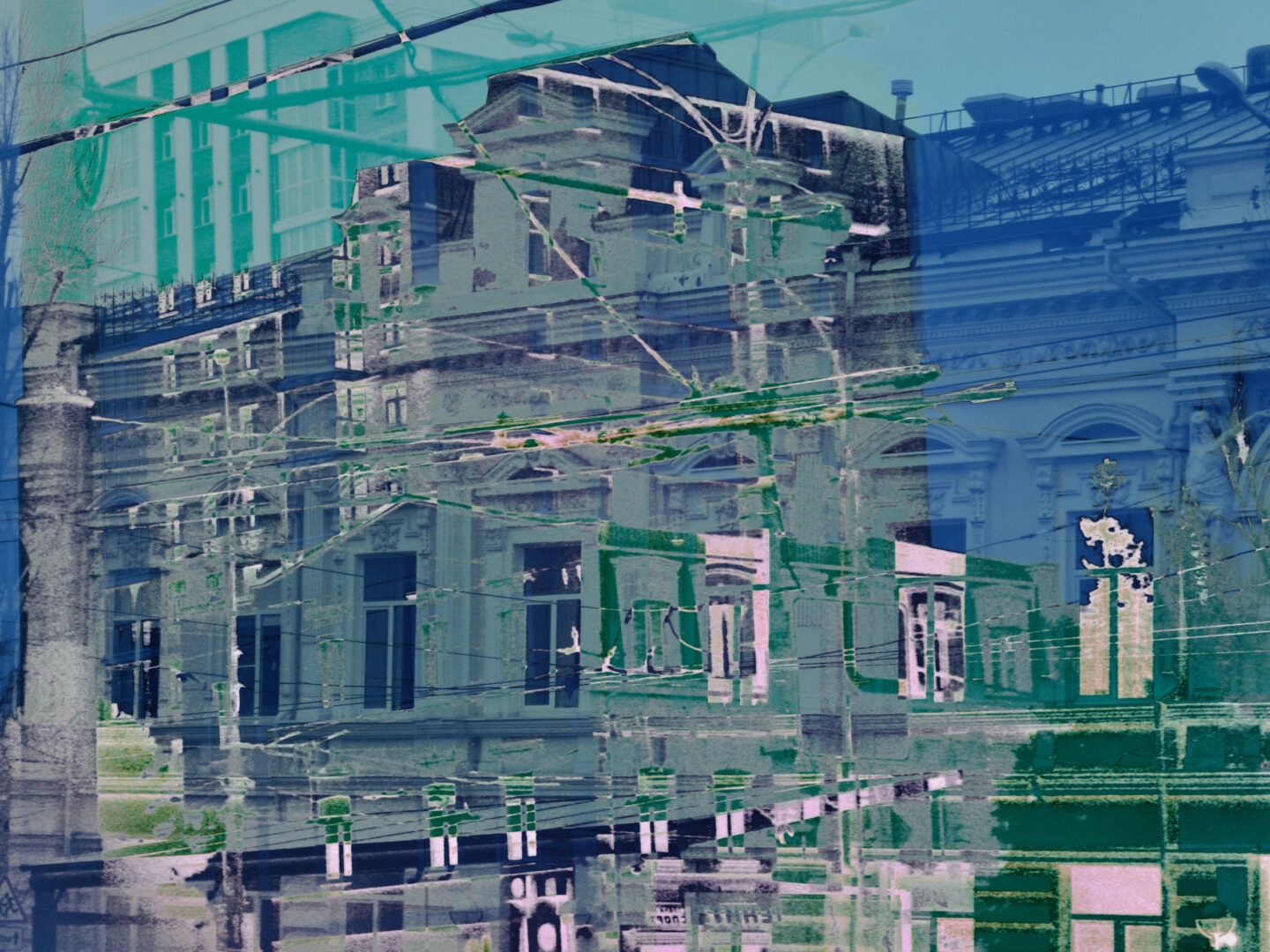
«Rostov» is a collection of stories about how nature struggles with civilisation, historical context, and personal memory: one is embedded in another, interrupts and at the same time gives a new layer and something very organic emerges. Images in which nature and urban motifs occupy a large place, but the person is singularly absent, act as a kind of border, the threshold of life and death. Structures and objects fight, hitting and absorbing each other: branches, like roots, wrap around buildings and coloured spots, trying to absorb them, to absorb all the juices of vital energy, and at the same time there is a reverse reaction, the city absorbs nature.
The space in this series consists of a psychedelic mash, a riot of nuclear colours, reflecting a new technogenic harmony. Often fragments of photos made in the double exposure technique look like a collage, an illusory articulation of the constructivist sense, the purpose of which is to deconstruct the original image.
Of particular importance for the photographer is the link to the area where she spent her childhood and youth, her native Rostov-on-Don.
Rostov-on-Don, or Russian Chicago, is a city known since the mid-20th century for its criminal environment. But Marine focuses not on markers of historical memory, but on the atmosphere, her personal feelings and memories. We get a visualisation of the effect of a faded film, the image falling out in chunks and replacing it with neighbouring ones. Thus, there is a loss of meaning, its dissolution in the slime-like fog of urban vapours. And this creates a completely phenomenal effect – we find ourselves in a city that is almost impossible to identify. This is a kind of province, a lost and depersonalised place, which is very interesting for its atmosphere of fading life. The ubiquitous disharmony of this series creates a phenomenal image of all-consuming devastation, connecting with Marine’s ‘Transformation’ series. But at the same time, this is also an opportunity for a new reading of a specific place, where nature quietly digests the criminal history.
